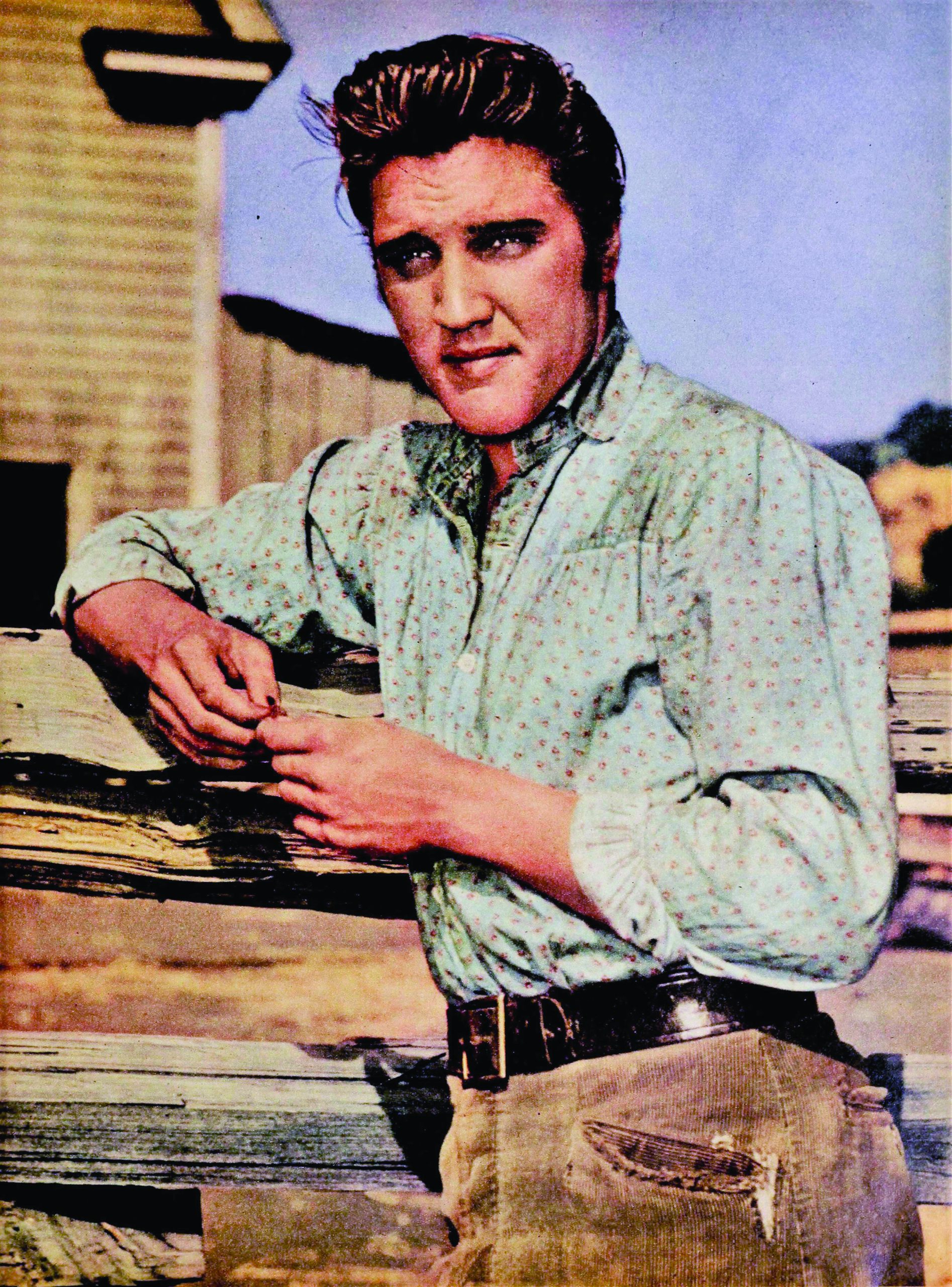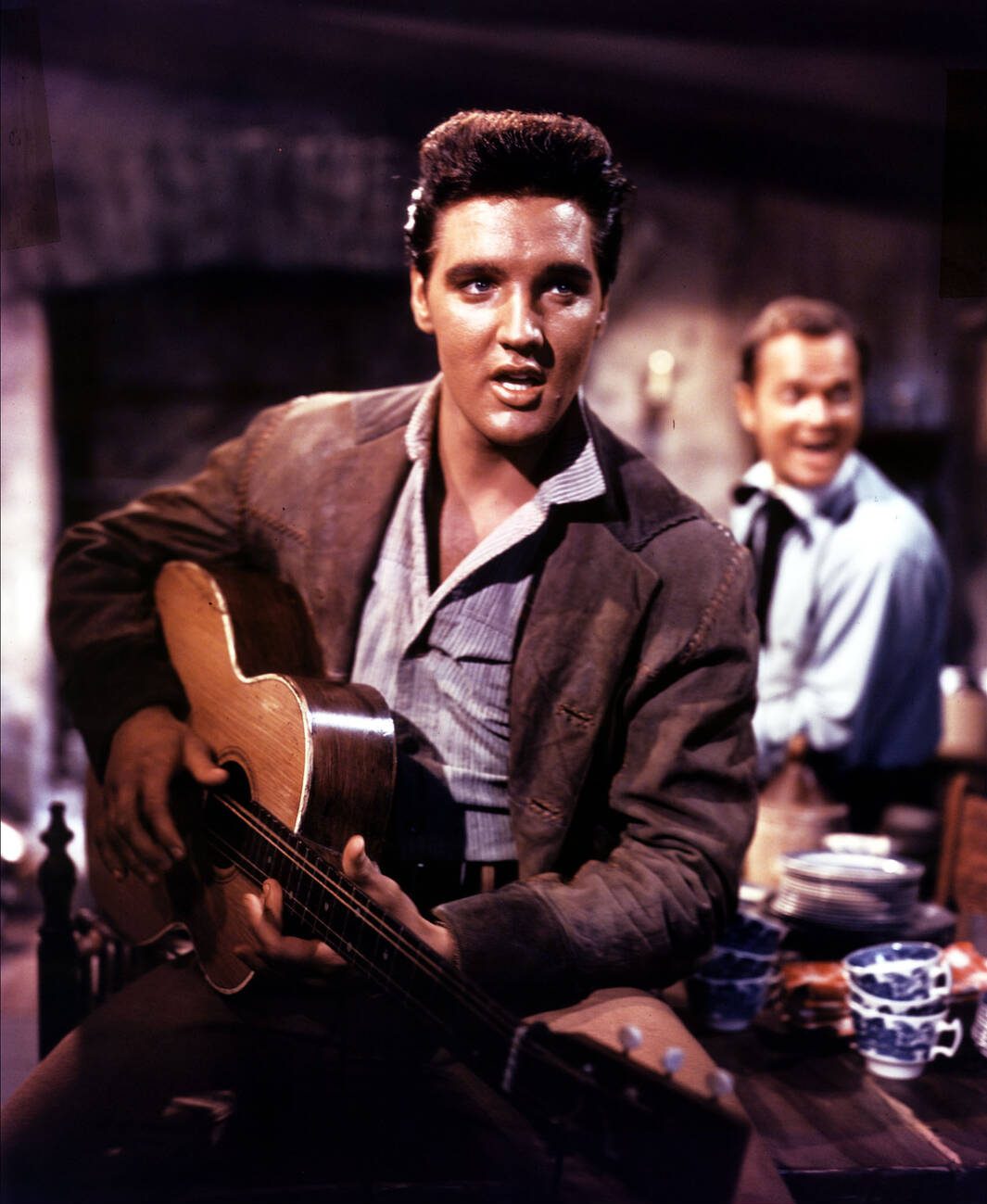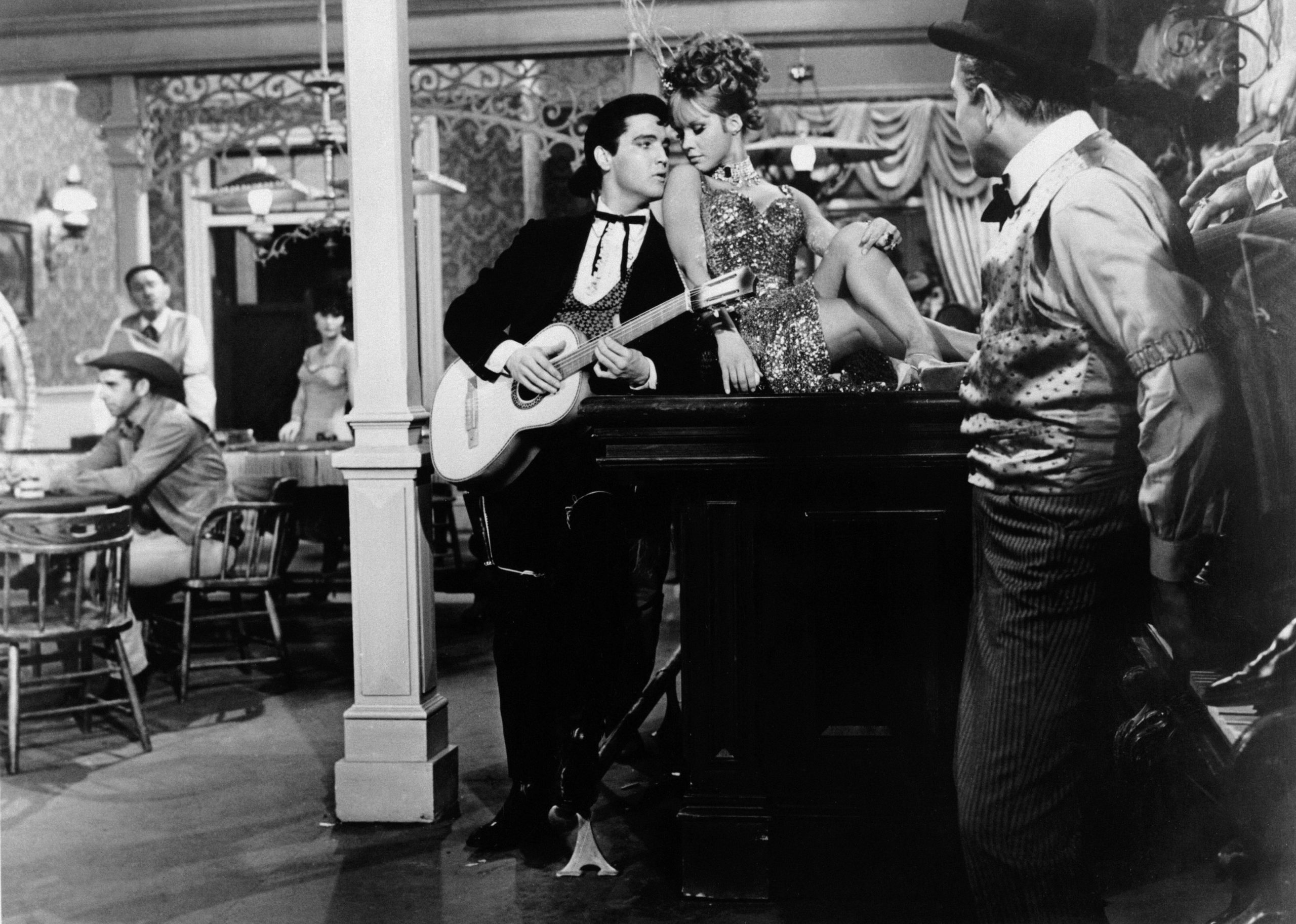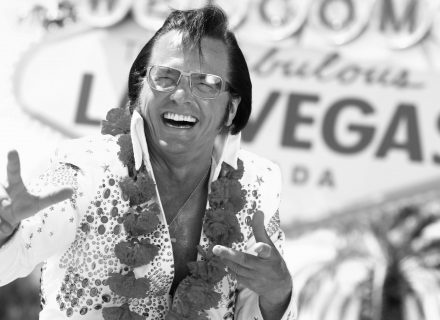To celebrate the late King of Rock ’n’ Roll’s 90th birthday year, we take a survey of Elvis’ western movies, his deep love of horses, and the lasting legacy fueling a year of celebrations at Graceland and beyond.
As we celebrate what should have been Elvis Presley’s 90th birthday year, we thought it’d be rewarding to do more than simply listen to his chart-topping hits and rewatch his concert movies and TV specials. Always looking for the cowboy connections (and there are many), we fired up the DVD players and streamers to take another look at four movies of special interest to C&I readers, in which The King ruled as either a Wild West protagonist or a rodeo star.
 A January 1957 publicity photo taken for Elvis Presley's first western, Love Me Tender.
A January 1957 publicity photo taken for Elvis Presley's first western, Love Me Tender.
Love Me Tender (1956)
Elvis made a promising movie debut in director Robert D. Webb’s post-Civil War western as Clint Reno, a Texas homesteader who marries his brother’s sweetheart (Debra Paget) after receiving reports that his sibling, Vance Reno (Richard Egan), was killed while fighting for the Confederacy. Unfortunately, Clint discovers those reports were greatly exaggerated when Vance comes marching home. Even more unfortunately, while Vance nobly struggles to accept the loss of his love, Clint is driven to extremes by jealousy. Nothing good comes of this.
Egan is the top-billed star here, but Elvis is the one who drew hordes of young fans to the box office. And when many of those young fans objected to the death of their idol’s character after viewing the film at preview screenings, the filmmakers turned to Plan B: They superimposed a shot of Elvis strumming his guitar and singing the title song over the final graveside scene.
As James L. Neibaur noted in his 2014 book The Elvis Movies, “Elvis realized he was ‘green as a gourd’ as far as acting was concerned, but believed he learned a lot from the patience of his director [Robert D. Webb] and the benevolence of his co-stars.” Presley “confided in Richard Egan that he was ‘plenty scared’ about acting in his first feature. Egan was a former acting teacher and took Elvis under his wing.”
Neibaur added: “Elvis even considered attending acting school to better hone his craft, but his recording and touring schedule did not allow for such a diversion, Even during the filming of Love Me Tender, Elvis was recording new songs, appearing on television, and giving live concerts. One has to marvel at the 21-year-old’s energy, especially since, in his enthusiasm, he had also memorized the entire script of Love Me Tender, including everyone else’s lines.”
 Presley starred opposite actress Debra Paget in Love Me Tender, which found him playing a Texas homesteader.
Presley starred opposite actress Debra Paget in Love Me Tender, which found him playing a Texas homesteader.
Flaming Star (1960)
Widely viewed by critics and fans as one of The King’s very best star vehicles, director Don Siegel’s potent period drama — based on western author Clair Huffaker’s novel Flaming Lance — is propelled by Elvis’ effective and affecting performance as Pacer Burton, the son of a Texas rancher (John McIntire) and a Kiowa mother (Dolores del Río). Pacer finds himself torn between two cultures: a neighboring family is massacred by Kiowa warriors, and other homesteaders demand that Pacer and his family (including half-brother Clint Burton, played by Steve Forrest) make it clear just what side they’re on.
Flaming Star was filmed during a period when Elvis tried to downplay the music and emphasize the drama in his movies, and Siegel (who went on to direct Clint Eastwood in such movies as Dirty Harry and Two Mules for Sister Sara) was eager to accommodate his star. Unfortunately, while the director won some battles — he convinced the studio that Elvis should sing one song over the opening credits and another at a birthday party, but no more — he may have lost the war.
After Flaming Star proved to be a box-office misfire, Siegel told an interviewer: “I think [20th Century Fox] made a mistake. They should have put on a campaign emphasizing that Elvis emerged as an actor in the film. If they weren’t going to sell it properly, they shouldn’t have released it.”
Fun fact: When veteran screenwriter Nunnally Johnson (The Grapes of Wrath, The Gunfighter) first took a crack at adapting Huffaker’s novel for the big screen, he originally envisioned Marlon Brando in the role of Pacer — and Frank Sinatra as Clint. It was only after those actors passed on the project that Presley and Forrest came on board, and Huffaker was drafted to handle script rewrites.
 Presley played the son of a Texan rancher father and a Kiowa mother, torn between cultures, in Flaming Star.
Presley played the son of a Texan rancher father and a Kiowa mother, torn between cultures, in Flaming Star.
Tickle Me (1966)
Although he isn't entirely persuasive during scenes where he (and/or his stunt double) attempt bull-riding and bronc-buster, Elvis cruises along on his mega-watt charisma while playing Lonnie Beale, a rodeo champ who takes an off-season job taking care of horses at a guest ranch for women. “We help the girls get into shape,” explains the ranch’s proprietor (Julie Adams). Lonnie takes one look at the clientele and replies: “Well, you’re doing a real good job.”
There are some hilarious running gags about Elvis’ irresistible appeal to the hot-to-trot guests and a lightly amusing plot about long-hidden loot that plays like a forerunner of Scooby- Doo cartoons. But the real highlight here is a western-parody fantasy sequence in which The King appears as The Panhandle Kid, a milk-drinking gunslinger who bellies up to a saloon bar for his beverage of choice and gruffly tells the barkeep: “Leave the bottle!”
Tickle Me was scripted by Edward Bernds and Elwood Ullman, whose previous credits included movies for The Three Stooges and The Bowery Boys. And that suited Presley just fine. As Bernds would later recall in an interview: “Elvis was very shy and polite when Elwood and I met him, but he was genuinely impressed by our credentials. He liked the idea that we had worked with The Three Stooges and The Bowery Boys and looked forward to doing that type of comedy. If you’ll notice during the early part of the picture, when Elvis is just arriving at the spa, he is distracted by the pretty girls and trips over a table and chairs. I was on the set the day that was filmed. He stumbled over it in a comic manner, but without going overboard with his reactions, and it turned out to be charming and funny. Afterward, he came to me and Norman Taurog, the director, and wanted to be assured that it was funny. He worked hard and really wanted to do a good job. I thought the picture came out just fine.”
 Presley's turn as an off-season rodeo champ in Tickle Me played on his heartthrob status.
Presley's turn as an off-season rodeo champ in Tickle Me played on his heartthrob status.
Charro (1969)
Elvis made a game attempt at stretching himself as an actor and scuffing up his clean-cut image in writer-director Charles Marquis Warren’s Spaghetti western-influenced drama.
In the film, originally envisioned as a star vehicle for Clint Eastwood, he plays Jess Wade, a reformed outlaw whose former partners in crime just can’t quit him. The King exudes a badass vibe and sports an unshaven look while dividing his time between seeking a reconciliation with his estranged sweetie (Ina Balin) and plotting revenge against the varmints who framed him for their theft of a gold-plated ceremonial cannon.
Charro! is the only Elvis movie in which the star doesn’t sing on camera — he has only one song during the entire picture, the title tune sung over the credits — which may be one of the reasons why The King reportedly counted it among his personal favorites. Even so, it’s worth noting that by 1969, Elvis was already starting to sour on acting and made only two more feature films — The Trouble With Girls and Change of Habit — after this one.
The pace is a tad pokey, and the plot occasionally strains credulity — while trudging through the wilderness on foot, Wade conveniently encounters a group of wild horses and immediately tames one of the steeds — but Charro! as a whole is surprisingly entertaining and, no joke, family-friendly. Back in the day, it actually received a G rating from the MPAA.
 Presley expanded his acting chops and found a performance to take a lot of pride in with Charro!
Presley expanded his acting chops and found a performance to take a lot of pride in with Charro!
Learn how the world is celebrating Elvis' 90th Birthday and learn the fable of The King and His Horses.
From our January 2025 issue.















